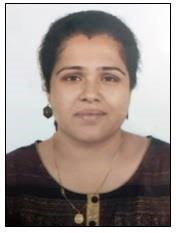
Country: India
Jenia Mukherjee is an Assistant Professor at the Department of Humanities and Social Sciences, Indian Institute of Technology Kharagpur. Her research interests span across environmental history, political ecology and transdisciplinary water research. She received the Australian Leadership Awards Fellowship in 2010 and 2015. She was one of the 20 recipients of the World Social Science Fellowship offered by the International Social Science Council in 2013 for her work on nature-culture interactions in the tropical-estuarine deltaic Lower Gangetic Basin, west Bengal, India. In 2018-19, she received the prestigious Carson Writing Fellowship by the Rachel Carson Center for Environment and Society, Munich for writing her book on Blue Infrastructures of Kolkata. This book covers the fascinating story of challenges and opportunities prevalent in small-scale fishing based upon reuse and recycling of Kolkata’s wastewater through the use of low-cost folk technology across generations.
She is a member of TBTI and one of the Co-Investigators of the SSHRC funded Dry Fish Matters (DFM) Project, being led by the University of Manitoba, Canada. She is one of the organizers of the Chilika Summer Field School organized every year by the School of Environment, Enterprise and Development, University of Waterloo, Canada. She is also the Indian Principal Investigator for the EqUIP Project on Towards a ‘Fluid Governance’: Hydrosocial Analysis of Flood Paradigms and Management Practices in Rhone and Ganges Basins (India, France and Switzerland). Her online MOOC series entitled Water, Society and Sustainability is a popular course with large enrollment figures.
Q: What are you currently working on within the context of small-scale fisheries?
Since the last one decade, I have worked on the canals and wetlands system of Kolkata applying the historical urban political ecology (HUPE) framework. With Kolkata having no separate sewage treatment plant, the vast expanse of wetlands (12, 5000 hectares) known as the East Kolkata Wetlands (EKW) recycles 750 million litres of wastewater generated by the Kolkata Municipal Corporation, and in turn, produces 22 tonnes of fish everyday. Wide fish varieties are nurtured in series of waste stabilization ponds (WSPs) which function using nature’s services and traditional skill and wisdom of small-scale fishers. The system operates through the complex interconnections between the municipal canal, locally excavated inlet canals (that carry water to the WSPs) and the Outfall Channel (i.e. the Kulti River) which passes through the Indian Sundarbans Delta before finally meeting the Bay of Bengal. However, with rapid urban sprawl consuming wetlands and lack of availability of wastewater, both the survival and sustenance of small-scale fishers and the Kolkata city are at stake. Moreover, recent conflicts between Municipal Corporation and fishers relating to wastewater access and distribution are not only affecting sewage-fed fish production in the EKW but also fisheries in the Indian Sundarbans Delta as it is receiving raw sewage through the Outfall Channel. But again, this new crisis has actually crafted a transformation in the aquatic regime of a stretch of the Sundarbans marshes from saline to non-saline, enabling Sundarbans fishers to pursue small-scale wastewater dependent fishing at the costs of EKW fisheries. My recent research is based on explorations of these multi-layered interdependent realities in fluid muddyscapes like the Ganges Delta. The research is focused on discerning complex dialectics across urban, peri-urban and river island scapes and mapping its wider implications on small-scale fisheries and fishers at large.
Q: If you could single out one or two most significant factors for securing sustainability of small-scale fisheries, what would these factors be?
For securing sustainability of small-scale fisheries, transdisciplinary research facilitating trans-sectoral collaborations, coordination and exchanges is the most significant factor. It is important to understand ‘fisheries beyond fisheries’ by including other domains and actors like forests and forest officials, urban development and municipal stakeholders, etc. that largely influence fish production in complex peri-urban scape, forest fringes and deltaic basin, interconnected to each other, like the Lower Gangetic Basin.















